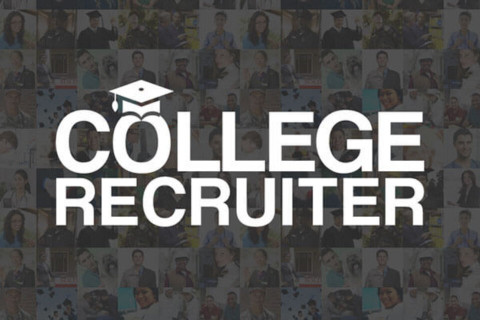Congratulations, on receiving an internship or job offer!
You’re probably excited and you should be! While you might be tempted to quickly say yes to this secured opportunity, did you know you can negotiate? Check out these negotiation strategies below!

Why should I negotiate an offer?
- Wage discrepancies, especially between genders, are real – advocate for yourself! Do your research on websites like Glassdoor to know typical salaries, identify cost-of-living for geographic areas, understand your expenses, and be ready to negotiate and advocate!
- You have the most leverage in this stage. If done professionally, the worst an employer can say is no to whatever you ask them from salary to delay of start date, even extending the offer deadline in case you have other interviews or offers on the table!
- The deadline given for accepting or declining the offer is too soon. Through negotiations, you have the ability to ask for deadline extensions, ask follow-up questions that may require research, or allow other interviews or offers from other companies to catch up.
- Employers want applicants to not only accept the position, but to also be satisfied with the result. Accepting an opportunity means creating a commitment between you and the employer, but the initial offer may not be exactly what you were hoping for. Employers will often do their best to get to yes!

Before negotiating:
- Thank the employer for the offer. You do not have to be overly enthusiastic, but be polite. In addition, you can say something like “I still have a few questions about the position” or “Can we talk about the terms of the offer?” Schedule a time to connect, making sure to include all parties involved.
- Always obtain a written offer letter that covers everything in detail (job duties, start date, salary, benefits if applicable, location, virtual or in-person, supervisor information).
- Identify what information you need in order to make a well-informed decision. Which components are important to get clarity on? What is most important to you (flexible schedule, vacation days, moving costs)? Know your value, target salary and benefits, and strategy for moving into the negotiations!
- Find out how much time they will give you to decide on the offer. If necessary, ask for more time. In situations where you are interviewing with other employers, contact those companies to ask for updates on their process and let them know that you have received an offer; this may compel those other employers to speed up their process or make an offer sooner than expected.
- Finally, consider whether you are willing to commit to the position if negotiations go well. It’s best to negotiate with firms that you will say yes to. Do you feel a genuine fit with the department and organization? What are the pros and cons of the position and working for this employer?

During negotiations:
- When entering negotiations, be sure to come in with your notes and email exchanges, including any market research you have done and a copy of the offer letter.
- Remain positive, flexible and professional. This is not a battle, but rather a conversation to help you and the employer understand each other. Try to anticipate the employer’s reactions by practicing with a friend or family member. Remember that the employer picked you and they want to make this work!
- Keep the employers’ perspective in mind and leverage your value. The search process is expensive and time-consuming, and by negotiating, the employer may be in a better position than failing the search. Brainstorm how your own value prop can counter potential employer objections to help close the deal!
- Make any requests in an informal way by asking questions and listening, and knowing how to respond to “no.” Try to avoid fixating on one item, and support all requests with evidence-based justifications through showcasing your experiences, strengths, results, and market-data.

After negotiations:
- You may have to wait while the employer discusses your requests with their team or HR department. Asking how long this could take can be helpful for your own timeline. Knowing who is making the ultimate decision can be useful for understanding how simple or complex the post-negotiations process could be.
- Prepare for any eventuality, including having to negotiate again. The employer may come back with a counter-offer, or a “no” to your ask. Budget, company size, internal equity, and economic and industry changes among others may impact employer decisions.
- Whatever happens, be ready with your own plan. Are you willing to commit to this employer? Are you considering other opportunities? What are your nonnegotiables?
- Finalize the new details with the employer in writing, signing only the new offer with updated terms. Expectations for success, promotion, and re-appointment should be clear in the offer letter.

After closing on the final version of the offer, your internship/job search is done!
You made it! Advocating for yourself to address your needs while also being considerate of the employer’s situation can seem like a lot of work, so take a moment to reflect and be proud of what you have accomplished. Share the good new with your network, especially those who have helped you along the way (and thank them!).

What about other opportunities you are still waiting on, you ask?
- For employers whom you have interviewed with, reach out via email to thank them for their consideration, and let them know that you have accepted another offer. You do not need to share where or for what position. Be respectful and positive, but keep the email brief. You want to maintain the relationship as industries and contacts are often interconnected.
- It is not necessary to notify employers you have simply applied to. If they reach out at a later date requesting an interview, decline using the same strategy as above.
- Connect with the Greene Center if you are considering reneging! Reneging on an offer means that you have already accepted an offer but continue to move forward with the internship or job search process with other firms. Then, when presented with a different offer, you decline the original and accept the new offer. There are several reasons why reneging on the originally accepted offer can be harmful as you begin your professional journey. You may be placed on a “do not call/contact” list by the original employer for future opportunities, other employers within the same industry may learn of the reneging and thus refusing to or retract an offer, to potential ramifications from networking connections. The Greene Center understands there may be many reasons why you are considering this option. We strongly encourage you to reach out so that we can help you navigate your options.








